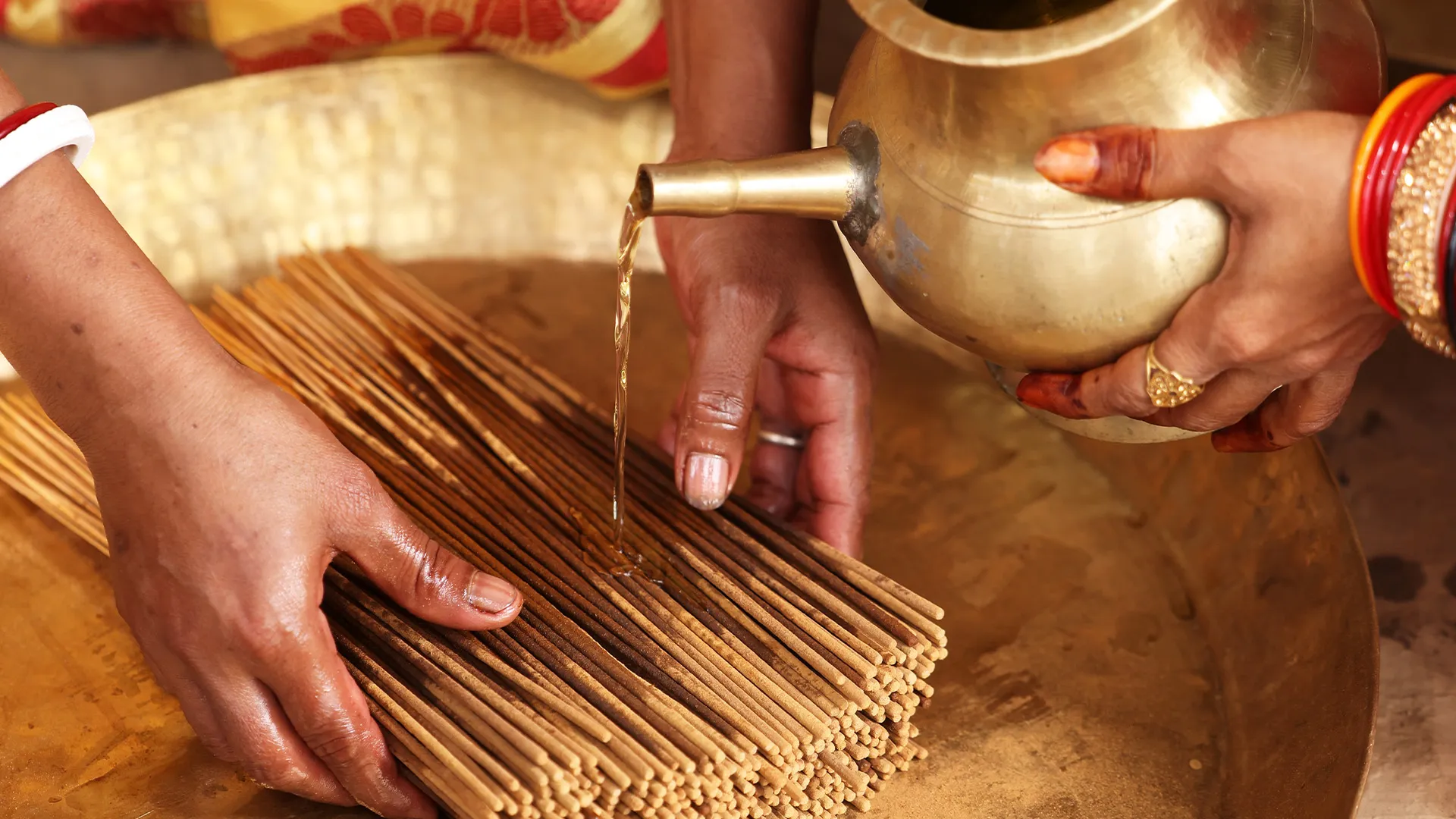Ram Navami 2024: Date, Significance, and How to Celebrate


Amidst the joyous chants of "Jai Shri Ram" resonating through the air, the anticipation of our Lord's birth anniversary fills our hearts. However, Ram Navami 2024 holds an even more profound significance as it witnesses the celestial presence of Ram Lalla gracing the sacred Ayodhya's Ram Janma Bhoomi within the newly constructed Ayodhya Mandir.
Ram Navami transcends the confines of a mere date on the calendar; it embodies an emotion that courses through the veins of every devout soul. From the serene streets of Rama Kshetra Ayodhya to the bustling corners of India, a symphony of devotion reverberates across the nation.
So, envisioning the echoing chants, and the swirling fragrance of rose and sandalwood, let the essence of devotion guide you through this blog as we explore the significance of Ram Navami, its celebratory traditions, and more.
The epic Ramayana, a cornerstone of Hindu literature, narrates the tale of Rama, a prince renowned for his courage, devotion, and unwavering adherence to Dharma (righteous duty). Born in Ayodhya, a glorious kingdom, Rama was the eldest son of King Dasharatha. However, destiny had other plans. Due to a series of events, Rama was exiled to the forest for fourteen years, along with his devoted wife, Sita, and his loyal brother Lakshmana.
Rama, Sita, and Lakshmana in the forest faced numerous challenges, showcasing their strength and resilience. One such instance was the demon king Ravana's abduction of Sita. Unwavering in his determination to rescue his wife, Rama embarked on a legendary journey, forging alliances and overcoming seemingly insurmountable obstacles. This period of exile and the epic battle against Ravana form the core of the Ramayana and serve as a testament to Rama's unwavering commitment to his ideals.
Finally, after a fierce battle, Rama emerged victorious, rescuing Sita and restoring Dharma to the land. Their triumphant return to Ayodhya marked the beginning of Rama's reign, a period of peace and prosperity. Ram Navami celebrates the birth of this embodiment of righteousness, a prince whose life became a benchmark for generations to come.
So now that you know why ram navami is celebrated, let us understand its significance and celebratory traditions.
Ram Navami falls on the ninth day (Navami) of the Chaitra month in the Hindu lunar calendar. This typically corresponds to March or April in the Gregorian calendar. In 2024, Ram Navami will be celebrated on Wednesday, April 17th.
There is a commonly asked question on the internet: Why Ram Navami is celebrated twice? It is not. Ram Navami is actually observed only once annually. The confusion might arise from the nine-day-long festival of Navratri, which precedes Ram Navami. During Navratri, the ninth day is dedicated to Durga Puja, another significant Hindu festival.
Ram Navami significance is beyond Hindu customs for many devotees. It's a day to:
Ram Navami is a vibrant celebration marked by various traditions, rituals, and festivities across India, reflecting the rich diversity of the country's culture. Here's a glimpse into some common practices:
While the core essence of Ram Navami remains the same, specific traditions vary across India:
Did you know that Ram Navami transcends geographical boundaries. Hindus across the globe observe this auspicious occasion with devotion and fervor. In countries with a significant Hindu population like Mauritius, Trinidad & Tobago, and Singapore, grand celebrations are organized, reflecting the widespread reverence for Lord Rama.
Ram Navami is more than just a day of elaborate rituals. It's a time to reflect on the teachings of the Ramayana and strive to embody the values it upholds. As we celebrate Lord Rama's victory over evil, let us also pledge to fight against negativity within ourselves and the world around us.
Happy Ram Navami! May this auspicious occasion fill your life with joy, peace, and the strength to follow the path of righteousness.
In the spirit of this occasion, avail a 20% discount on the Phool Ayodhya Collection by using code - NAVAMI20